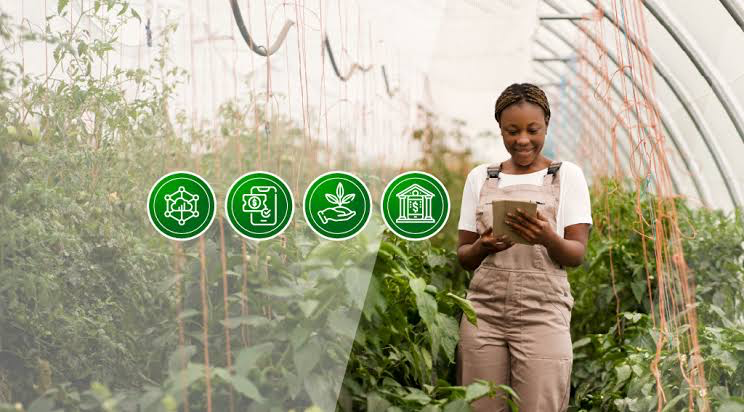Africa’s agricultural sector is the backbone of its economy, employing millions of people and contributing significantly to the continent’s GDP. However, despite its potential, the sector faces numerous challenges, including limited access to finance, inefficient supply chains, and inadequate infrastructure. Fintech, the intersection of finance and technology, is revolutionizing the agricultural sector in Africa, providing innovative solutions to these challenges and promoting agricultural development.
Access to Finance
One of the significant challenges facing African farmers is limited access to finance. Traditional financial institutions often require collateral, credit history, and formal documentation, which many smallholder farmers lack. Fintech companies are bridging this gap by providing alternative financial services, such as:
- Mobile-based payment systems: Mobile money platforms like M-Pesa, Orange Money, and Airtel Money enable farmers to make transactions, receive payments, and access financial services without traditional bank accounts.
- Digital lending: Fintech companies like FarmDrive and Apollo Agriculture provide digital loans to farmers, using alternative data sources, such as mobile phone usage and social media activity, to assess creditworthiness.
- Crowdfunding: Platforms like Farmcrowdy and Hello Tractor enable farmers to access funding from a large number of people, typically through online platforms.
Supply Chain Efficiency
Fintech is also improving supply chain efficiency in African agriculture by:
- Digitalizing transactions: Fintech platforms like Esoko and Farmart enable farmers to connect with buyers, negotiate prices, and receive payments digitally, reducing transaction costs and increasing transparency.
- Tracking and tracing: Technologies like blockchain and RFID enable the tracking and tracing of produce, reducing the risk of spoilage, improving quality control, and increasing trust between buyers and sellers.
- Market access: Fintech platforms provide farmers with access to new markets, enabling them to sell their produce to a wider range of buyers and increasing their income.
Data-Driven Decision Making
Fintech is also enabling data-driven decision making in African agriculture by:
- Providing market information: Fintech platforms like Esoko and Farmart provide farmers with real-time market information, enabling them to make informed decisions about planting, harvesting, and selling their produce.
- Soil health monitoring: Technologies like drones and satellite imaging enable farmers to monitor soil health, optimize fertilizer application, and reduce waste.
- Weather forecasting: Fintech platforms provide farmers with accurate weather forecasts, enabling them to plan planting, harvesting, and irrigation activities more effectively.
Case Studies
Several fintech companies are making a significant impact in African agriculture. For example:
- FarmDrive: FarmDrive is a Kenyan fintech company that provides digital loans to smallholder farmers, using alternative data sources to assess creditworthiness. The company has disbursed over $10 million in loans to farmers, increasing their income and improving their livelihoods.
- Apollo Agriculture: Apollo Agriculture is a fintech company that provides digital loans, seeds, and fertilizers to smallholder farmers in Kenya, Nigeria, and other African countries. The company has helped farmers increase their yields and income, improving food security and reducing poverty.
Challenges and Opportunities
While fintech has the potential to transform African agriculture, several challenges need to be addressed. These include:
- Infrastructure: Limited access to electricity, internet, and mobile networks hinders the adoption of fintech solutions in rural areas.
- Regulation: Unclear regulations and lack of standardization hinder the growth of fintech in African agriculture.
- Digital literacy: Limited digital literacy among farmers and other stakeholders hinders the adoption of fintech solutions.
Despite these challenges, the opportunities for fintech in African agriculture are significant. Fintech can:
- Increase financial inclusion: Fintech can increase access to finance for smallholder farmers, enabling them to invest in their farms and improve their livelihoods.
- Improve supply chain efficiency: Fintech can improve supply chain efficiency, reducing transaction costs, improving quality control, and increasing trust between buyers and sellers.
- Enhance data-driven decision making: Fintech can enable data-driven decision making, improving farming practices, reducing waste, and increasing productivity.
Conclusion
Fintech is revolutionizing African agriculture, providing innovative solutions to the sector’s challenges and promoting agricultural development. By increasing access to finance, improving supply chain efficiency, and enabling data-driven decision making, fintech can improve the livelihoods of millions of smallholder farmers and contribute to the growth and development of African economies. While challenges need to be addressed, the opportunities for fintech in African agriculture are significant, and the potential for impact is vast.

